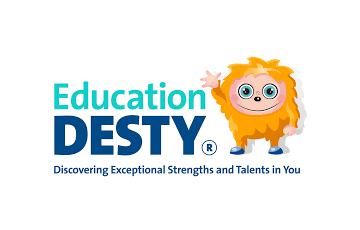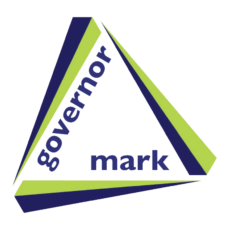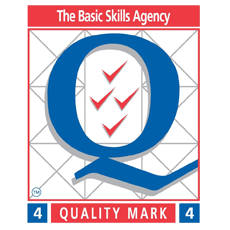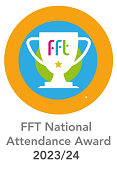Public Sector Equality Duty
Our school aims to meet its obligations under the public sector equality duty by having due regard to the need to:
- Eliminate discrimination and other conduct that is prohibited by the Equality Act 2010
- Advance equality of opportunity between people who share a protected characteristic and people who do not share it
- Foster good relations across all characteristics – between people who share a protected characteristic and people who do not share it
| Eccleston Lane Ends Primary | Comparison to the National Average | |
| Boys | 55.3% | 50.9% |
| Girls | 44.7% | 49.1% |
| Ethnic Minority | 6.6% | 37.4% |
| Special Educational Needs & Disabilities | 16% | 17.1% |
| Disadvantaged Pupils in Reciept of the Pupil Premium Grant | 9.8% | 25.9% |
What is the Public Sector Equality Duty (the PSED)?
The Public Sector Equality Duty requires public bodies to promote equality. The relevant protected characteristics are-
age
disability,
gender reassignment
pregnancy and maternity
race
religion or belief
sex
sexual orientation
Legislation and guidance
This document meets the requirements under the following legislation:
The Equality Act 2010, which introduced the public sector equality duty and protects people from discrimination
The Equality Act 2010 (Specific Duties) Regulations 2011, which require schools to publish information to demonstrate how they are complying with the public sector equality duty and to publish equality objectives
This document is also based on Department for Education (DfE) guidance: The Equality Act 2010 and schools.
Roles and responsibilities
The governing board will:
Ensure that the equality information and objectives as set out in this statement are published and communicated throughout the school, including to staff, pupils and parents, and that they are reviewed and updated at least once every four years
Delegate responsibility for monitoring the achievement of the objectives on a daily basis to the Headteacher
The Headteacher will:
Promote knowledge and understanding of the equality objectives amongst staff and pupils
Monitor success in achieving the objectives and report back to governors
The Deputy headteacher will:
Support the headteacher in promoting knowledge and understanding of the equality objectives amongst staff and pupils
Support the headteacher in identifying any staff training needs, and deliver training as necessary
All school staff are expected to have regard to this document and to work to achieve the objectives as set out in section 7.


Eliminating discrimination & other conduct that is prohibited by the act
Eccleston Lane Ends Primary School is committed to eliminating discrimination and other conduct prohibited by the Equality Act 2010. The school has implemented a comprehensive set of policies, practises, and initiatives to ensure compliance with this aspect of the public sector equality duty.
Anti-Discriminatory Policies:
The school has robust behaviour, staff, and pupil equality policies in place that explicitly prohibit all forms of discrimination, victimisation, and other prohibited conduct.
The school's recruitment and employment policies also reflect a strong commitment to equality and non-discrimination.
Staff Training and Development:
All staff receive regular training and professional development on topics related to equality, diversity, and inclusion. This ensures that staff are fully aware of their responsibilities under the Equality Act.
Celebrating Diversity and Promoting Understanding:
The school calendar includes a range of events and activities that celebrate different protected characteristics and promote understanding, such as Autism Awareness Day, Odd Socks for Down Syndrome Day, World Braille Day, and Pride Month.
The whole school community learns Makaton, and Makaton actions are incorporated into school assemblies, further demonstrating the school's commitment to inclusion.
Inclusive Curriculum and Extracurricular Activities:
The school's PSHE curriculum includes the 'No Outsiders' programme, which addresses issues around discrimination in an age-appropriate way.
Picture News assemblies regularly address a variety of equality-related topics, covering the nine protected characteristics.
Extracurricular activities are designed to be inclusive and accessible to all pupils, including girls-only sports clubs, clubs for SEND pupils, and free clubs for pupils eligible for the pupil premium.
Promoting British Values and Inclusion:
The school's curriculum and ethos are firmly rooted in British Values and Inclusion, ensuring that pupils have access to a diverse range of role models, stories, and experiences.
Community Engagement:
The school actively engages with the local community, inviting speakers from a diverse range of backgrounds to share their experiences and perspectives with pupils.
Through this comprehensive approach, Eccleston Lane Ends Primary School demonstrates a strong and proactive commitment to eliminating discrimination and other prohibited conduct, in line with the requirements of the Equality Act 2010.


Advancing equality of opportunity
As set out in the DfE guidance on the Equality Act, the school aims to advance equality of opportunity by:
Share attainment data each academic year showing how pupils with different characteristics are performing
Removing or minimising disadvantages suffered by people which are connected to a particular characteristic they have (e.g. pupils with disabilities)
Taking steps to meet the particular needs of people who have a particular characteristic
Encouraging people who have a particular characteristic to participate fully in any activities (e.g. encouraging all pupils to be involved in the full range of school activities)
In fulfilling this aspect of the duty, the school will:
Analyse data to determine strengths and areas for improvement. Implement actions in response.
Make evidence available identifying improvements for specific groups
Foster Good Relationships
1. Whole-School Assemblies and Celebrations
The school holds regular whole-school assemblies that celebrate diversity and promote understanding between people of different backgrounds. These assemblies cover topics such as:
Major religious festivals and cultural celebrations from a range of faiths and traditions
Awareness days/weeks for protected characteristics, e.g. Black History Month, Diversity week/Pride Month
Presentations by pupils, parents, or community members sharing their cultural heritage and experiences
These assemblies help to foster good relations by:
Exposing all pupils to diverse cultures, beliefs, and perspectives
Providing opportunities for pupils to share their own backgrounds and identities
Encouraging empathy, respect, and appreciation for differences
2. Inclusive Curriculum and Teaching Resources
The school's curriculum and teaching materials deliberately incorporate diverse perspectives and representations. For example:
Literature studied in English lessons includes authors and characters from a range of ethnic, cultural, and socioeconomic backgrounds
History and geography topics explore the contributions and experiences of different civilizations and peoples
Religious Education covers a breadth of world religions and belief systems
Additionally, the school ensures that displays, library books, and other resources reflect the diversity of the school community and the wider world.
This inclusive approach helps to:
Challenge stereotypes and promote understanding of different groups
Ensure all pupils see themselves and their experiences represented in the curriculum
Encourage pupils to engage with and appreciate diverse cultures and perspectives
3. Extra-Curricular Activities and School Trips
The school offers a wide range of extra-curricular activities and school trips that bring pupils of different backgrounds together. These include:
School clubs (e.g. choir, art, yoga/mindfulness) that are open to all pupils
Educational visits to places of worship, cultural centres, and community organisations
Residential trips that promote teamwork and collaboration between pupils
These activities and experiences foster good relations by:
Enabling pupils to interact and build friendships with those from different backgrounds
Exposing pupils to new cultures, traditions, and ways of life
Developing empathy, communication, and problem-solving skills
4. Partnerships with Local Community Groups
The school has established partnerships with various local community organisations, such as:
A nearby mosque, which hosts visits for pupils to learn about Islamic faith and culture
Makaton charity - Signing Hands deliver Makaton lessons, culminating in a Makaton/BSL showcase for parents
A local disability support group, which works with the school to improve accessibility and inclusion
These partnerships allow the school to:
Broaden pupils' understanding of different communities and lived experiences
Facilitate meaningful interactions between pupils and people with diverse backgrounds
Demonstrate the school's commitment to fostering good relations beyond the school gates
5. Student-Led Diversity and Inclusion Initiatives
The school has empowered pupils to take the lead in promoting diversity and inclusion through initiatives such as:
A student-led podcast that explores different cultures, identities, and perspectives
A school council that organises events and awareness campaigns
Pupil-led assemblies and presentations on topics related to protected characteristics
These student-led initiatives foster good relations by:
Giving pupils a voice and agency in celebrating diversity
Encouraging peer-to-peer learning and dialogue about difference
Demonstrating the school's commitment to amplifying pupil voice
Conclusion
By implementing a range of evidence-based practises, Eccleston Lane Ends Primary School can demonstrate its commitment to fostering good relations across all protected characteristics. This ongoing effort to promote understanding, empathy, and appreciation for diversity is essential not only for fulfilling the school's public sector equality duty but also for preparing pupils to thrive in an increasingly interconnected world. The school's leadership team should continue to monitor and refine these practises, seeking feedback from the school community and adapting to emerging needs and priorities.


Equality objectives (2022-2024)
Under the Public Sector Equality Duty (PSED) the school is required to set Equality Objectives.
Our published information must be updated annually and objectives published at least once every four years.
Objective 1: To narrow the gap between the progress made by all children and that made by girls in Key Stage 2.
Objective 2: Train all members of staff and governors on equal opportunities and non-discrimination. Training evaluation data will show that 100% of those attending have a good understanding of the legal requirements.
Objective 4: To ensure that future reviews of all school policies include information about and links to PSHE
Objective 5: Adopting a whole-school approach which will provide staff with formal guidance on how to deal with homophobia in school.









